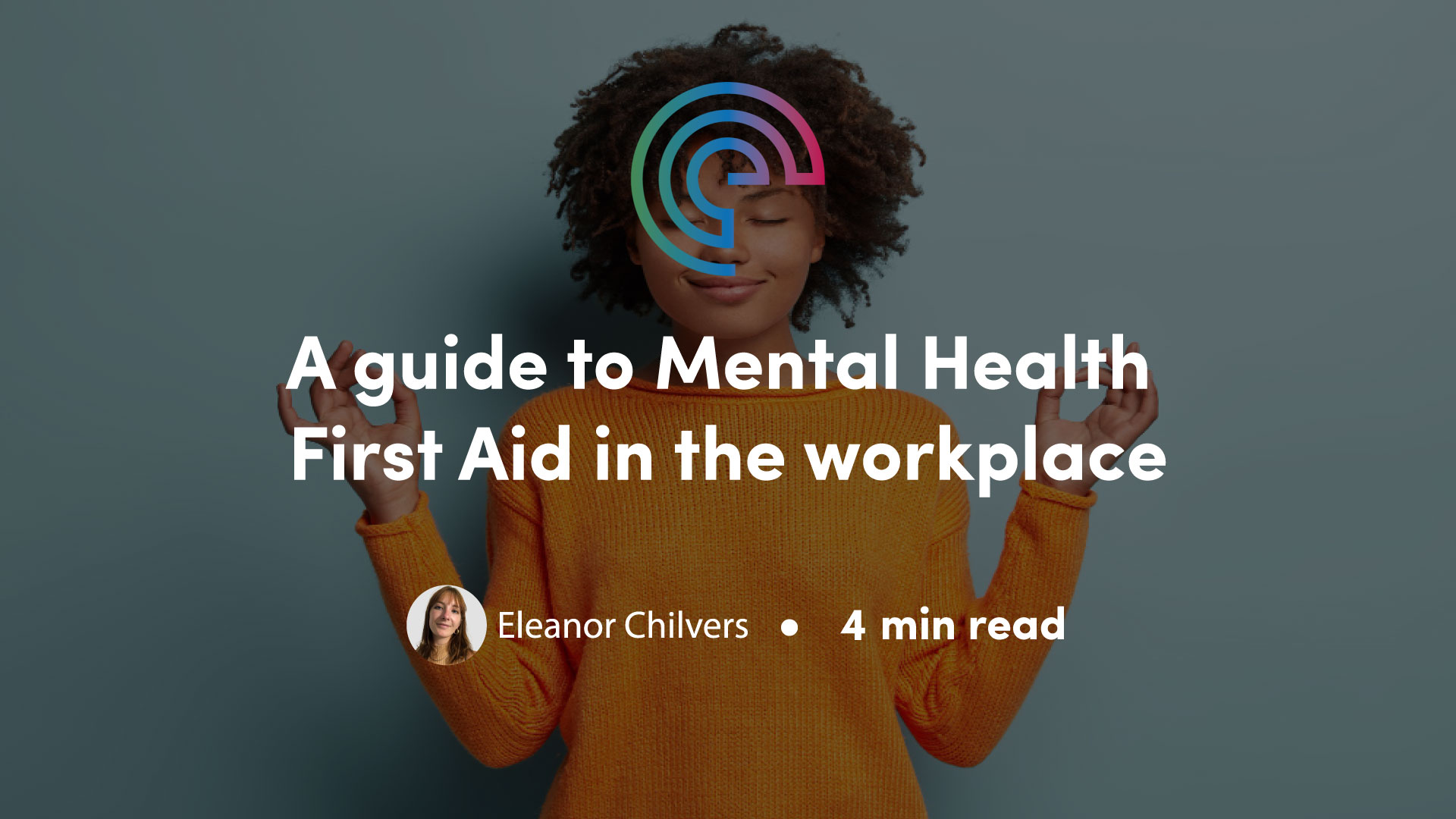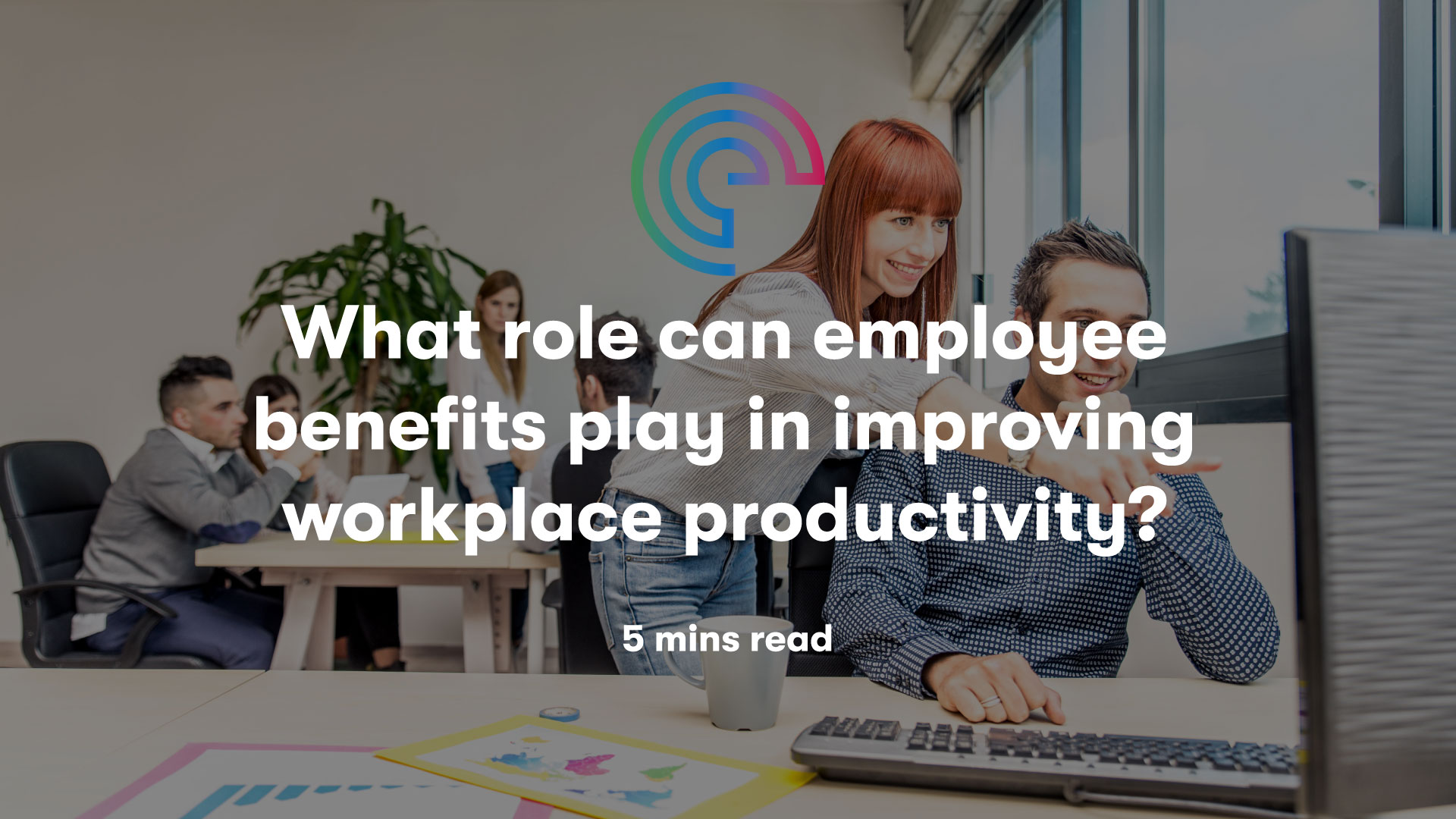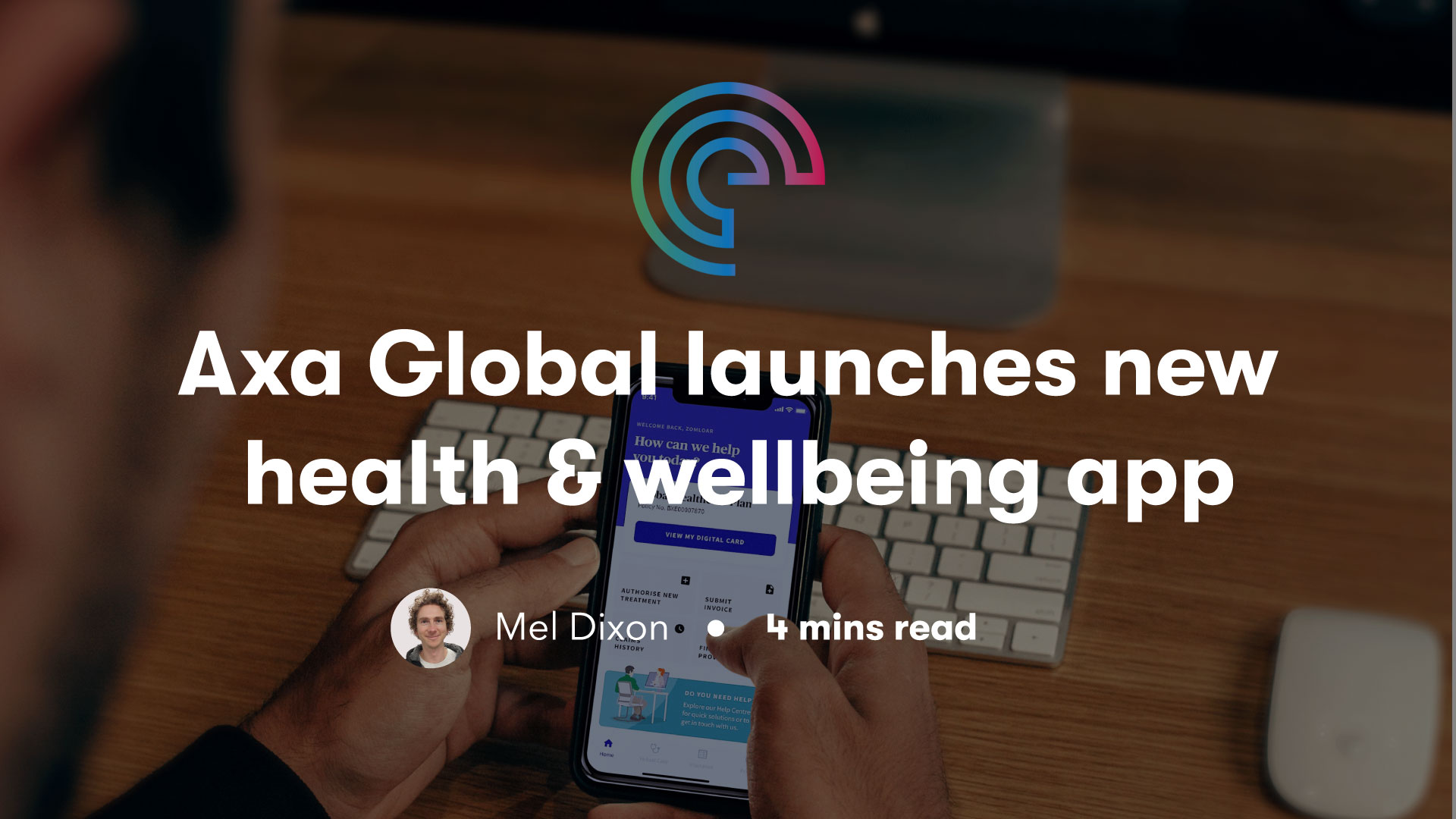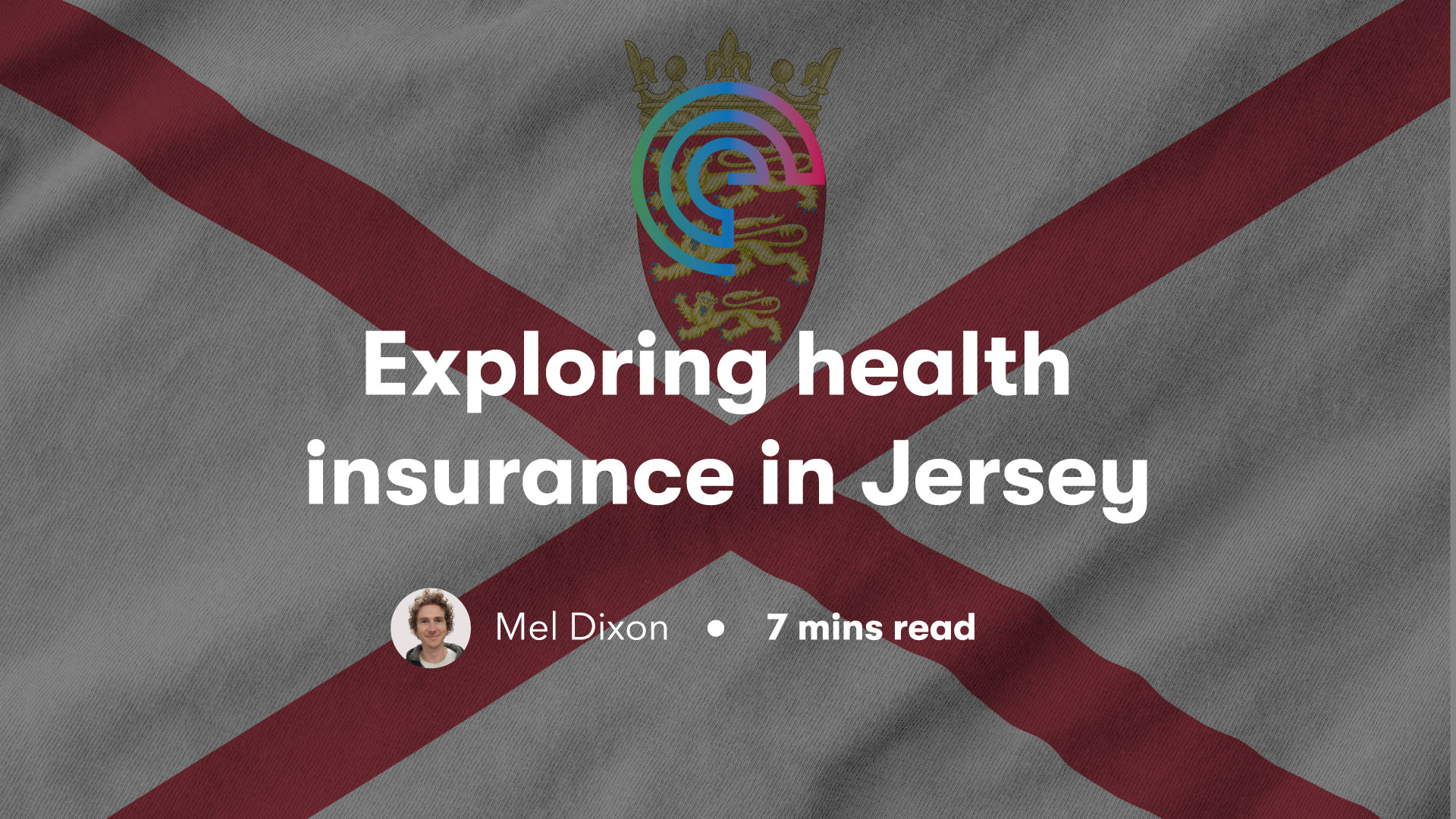One in six people experience mental health problems at work, according to the Royal College of Psychiatrists. While conversations around mental health are increasing, it’s important to tackle the problem with practical solutions.
Enter Mental Health First Aid…
Mental Health First Aid courses have become a popular option for many businesses seeking to tackle the scourge of poor mental wellbeing. But what is Mental Health First Aid? And does it really have practical benefits? We answer these questions and more…
Looking for advice on how to boost employee wellbeing through employee benefits? Get FREE one-to-one advice from our expert brokers on 01273 974419 or email [email protected].
What is Mental Health First Aid?
Mental Health First Aid (MHFA) is a training programme designed to teach employees how to understand, identify, and support someone suffering with their mental health. It provides staff with the opportunity to gain a deeper understanding of what mental health is and what impacts mental wellbeing.
MHFA was developed and launched in England in 2006 by the organisation Mental Health First Aid England. Its development revolved around raising awareness of mental health and to reduce the stigma around mental health issues.
The aim is to get mental health first aiders to act as you would for physical first aid, acting in moments of crisis or distress until professional help is provided. This doesn’t make you a qualified counsellor or psychotherapist though!
Undergoing mental health first aid training will provide employees with:
- Practical skills, knowledge, and confidence to recognise symptoms of mental health issues
- The ability to effectively support anyone in mental distress – respond, listen, reassure
- Provide information of further professional support and advice
- A comprehension of mental health issues – understanding depression, anxiety, suicide prevention, psychosis
- Understanding their own mental wellbeing
How does it work?
The two-day course is divided into 4 sections to provide a wide understanding of different issues:
- Mental Health First Aid – mental health and depression
- Depression and suicidal crisis
- Anxiety, personality disorders, eating disorders, self-harm
- Psychosis, schizophrenia, bipolar disorders
MHFA has established a 5-step easy to follow action plan:
- “Approach the person, assess and assist with any crisis”
- “Listen and communicate non-judgmentally”
- “Give support and information”
- “Encourage the person to get appropriate professional help”
- “Encourage other supports”
Underlining each step is the aim of changing the overall perspective on mental health in the workplace, making mental health just as important as physical wellbeing
How is Mental Health First Aid important?
In comparison to physical health, we often view mental health as less important – it’s not something we can physically see and fix simply. When our physical health is poor, so is our ability to enjoy life. The same applies to mental health. Both can shift from day to day, never staying the same, and require just as much attention.
Mental health is still a huge issue in the UK, at home and in the workplace. Mind outlines just how bad the climate still is. Around 1 in 4 people will experience a mental health problem every year, with only 1 in 6 reporting these problems.
MHFA training can be a proactive way that businesses can improve their mental wellbeing strategies, to promote healthy work environments and protect those employed.
What type of businesses use it?
MHFA is a programme that can be adopted by any organisation. However, due to cost, it has previously been more accessible to larger firms. There has now been an increased interest from smaller organisations and different sectors, such as construction or finance sectors, or governmental departments (Department of Work and Pensions have trained over 1000).
Below are examples of businesses that have added MHFA to their wellbeing strategies:
Royal Mail:
- Trained around 1000 employees to contribute towards their Because Healthy Minds Matter wellbeing strategy. Their strategy was developed to increase awareness, decrease stigma, signpost to tools and support, know where to get help in a crisis.
Channel 4:
- 88% of employees agreed they had learnt how to spot warning signs of mental health issues, 93% agreed they would now practice more mindfulness at work and personal routines, 78% said they had learnt more about the influence of social media over young people’s mental health.
- The programme had helped employees to gain a deeper understanding of each other and their own mental health.
What are the benefits of Mental Health First Aid?
Research from Deloitte reveals that mental health is costing UK businesses up to £56 billion each year. As well being the right thing to do, tackling mental health is likely to be in a company’s economic self-interest too.
Investing in Mental Health First Aid can help:
- Reduce stigma
- Promote open discussion around asking for help
- Help staff feel more comfortable reporting mental health as their reason for sickness absence
- Tackle a mental health issue in its early stages
- Prevent a crisis from happening – suicide / self-harm
- Reduce absenteeism & presenteeism
- Reduce discrimination
What are the disadvantages of Mental Health First Aid?
“My main problem with it is that organisations see it as a tick in the box” (Alan Bradshaw, business psychologist).
MHFA can improve an organisation’s employee wellbeing strategy but too much reliance on just one programme can negatively impact a company’s approach to mental health. Listed below are a few disadvantages from MHFA:
- The strain on the mental health of the people trained – requires the skill of knowing when to be empathetic vs apathetic
- People trained can take on too much responsibility – drawn into a counsellor role without the qualifications
- Costly – often considered a luxury for most businesses making it an unlikely benefit for most employees
Wellbeing and Engage
Although offering training in Mental Health First Aid can help promote awareness in the workplace, to be useful, it must be part of a wider wellbeing strategy. MHFA alone will not transform the psychological wellbeing of an organisation.
The conversation around mental wellbeing must stay alive, and this can be achieved by companies providing multiple levels of support and different policies. Find out how EAPs can help companies address these issues in a cost-effective way.
Contact us at [email protected] or call 01273 974419 for FREE no-obligation advice and support.









